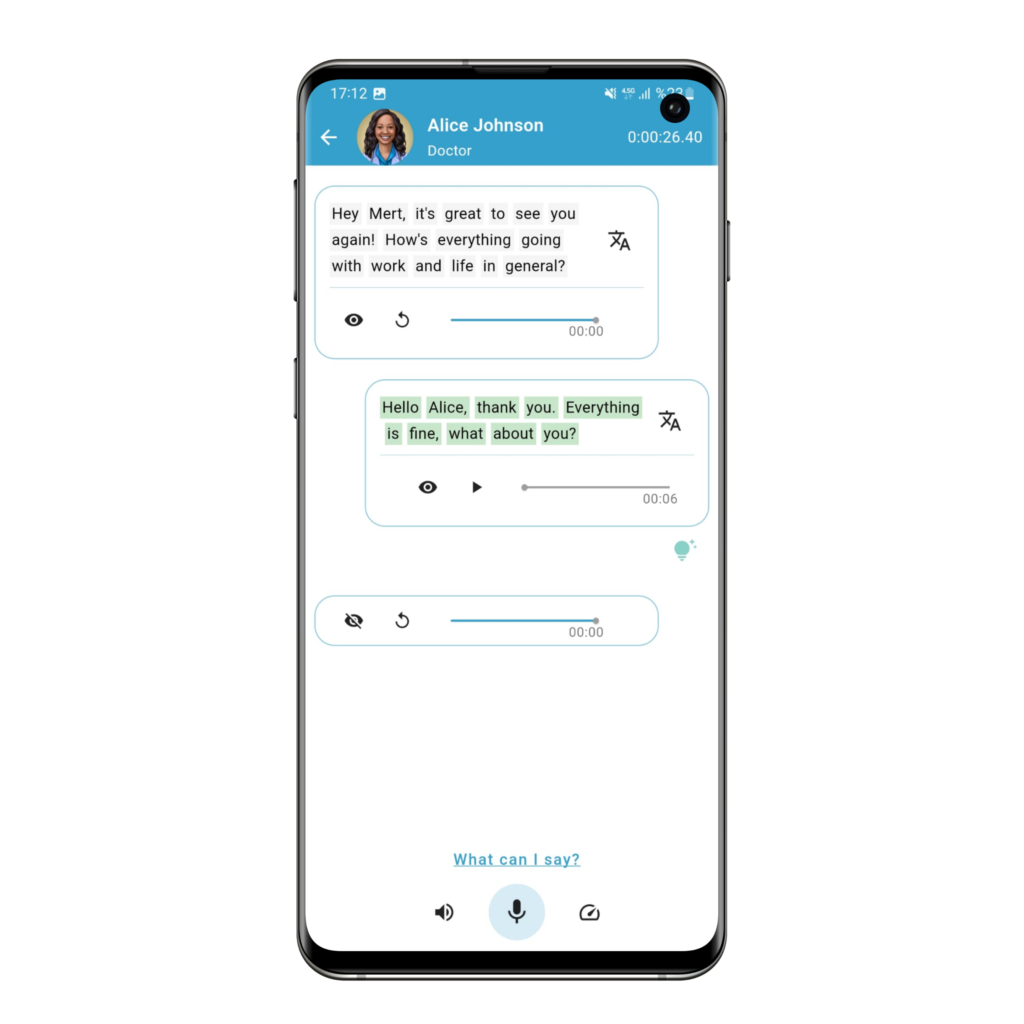Looking to improve your spoken English skills in a safe and judgment-free environment? Download Tutor AI today!
Hello again, dear readers! As we previously discussed in our “Building Vocabulary for Better Speaking” post, expanding your vocabulary is an integral part of refining your English speaking abilities. Today, I shall delve deeper into this subject, focusing specifically on how to use online resources and apps to enrich your lexicon.
Before we go any further, let me share with you a brief anecdote. As a young girl growing up in France, I didn’t have many opportunities to learn new English words, let alone speak English regularly. But everything changed when I started to utilize online resources. They opened up a world of opportunity for me to immerse myself in the English language.
There happens to be a plethora of websites and applications designed with the singular purpose of helping individuals all over the globe enhance their English vocabulary. One such website that made a significant impact on my English learning journey, back in the day, was none other than the British Council’s Learning English site. It not only allowed me to learn new words but also to hear native speakers pronounce them, hence improving my spoken English.
Apps are another treasure-trove of resources for English language learners. Duolingo, for instance, is one such app I find particularly helpful. The gamified learning experience makes it engaging and fun. The vocabulary exercises are paired with listening activities, providing valuable context and helping me improve my pronunciation.
Another favorite of mine is the app called FluentU, which offers videos in English with subtitles, providing an immersive experience just like watching English movies. I used to spend hours on FluentU, pushing my boundaries, and picking up new words which I then used in my daily conversations.
Memrise is yet another app with a unique approach–it helps you to remember certain words or phrases that you seem to struggle with. I recall how it helped me remember some of the trickiest English idioms and phrases that usually left me stumped.
Of course, while these online resources are wonderful for learning, it’s important to remember: if we don’t use these new words in conversation, we’re likely to forget them. I, for instance, used to practice utilizing the new words through speaking exercises, repeating sentences, or trying to put them into my daily conversations.
One particularly useful tool I’ve found for this purpose is HelloTalk. It’s a platform that connects you with native speakers of the language you’re learning, allowing for real-world practice. I recall the exhilarating experiences I had, engaging in language battles with my newfound friends.
Now you might ask, “Elodie, what if I stumble upon a new word and I want to know its meaning immediately?” My answer to that would be “Don’t worry! There’s something to help you out there too!”. Online dictionaries such as Cambridge Dictionary or Merriam-Webster, not only provide the definition, but also the pronunciation, and usage in a sentence, all at your fingertips.
Speaking of stumbling upon new words, an app called WordUp is worth mentioning. It provided me the opportunity to learn words in context, presenting new words every day from various sources, even song lyrics!
Remember, learning English is a journey, and every good journey needs a roadmap. That’s where applications like MosaLingua come in. This app creates a personalized plan targeting your linguistic needs which helped me stay organized during my language learning journey.

Ultimately, learning vocabulary is more than just memorizing words. It involves understanding the context, learning pronunciation, and making the word part of your active vocabulary. In my journey, online resources and apps served as my constant companions – invaluable tools aiding my quest to conquer the English language.
So, embrace these technological marvels, weave them into the fabric of your English learning journey, and watch your vocabulary blossom. However, remember, these are all aids, the bulk of your progress rests on your shoulders. Keep the learning attitude alive, stay patient and persistent. After all, Rome wasn’t built in a day!
In the forthcoming blog posts, we’ll continue our journey, exploring other aspects of English speaking, moving gradually towards becoming more fluent, articulate speakers! Until then, keep learning, and don’t forget to practice!


